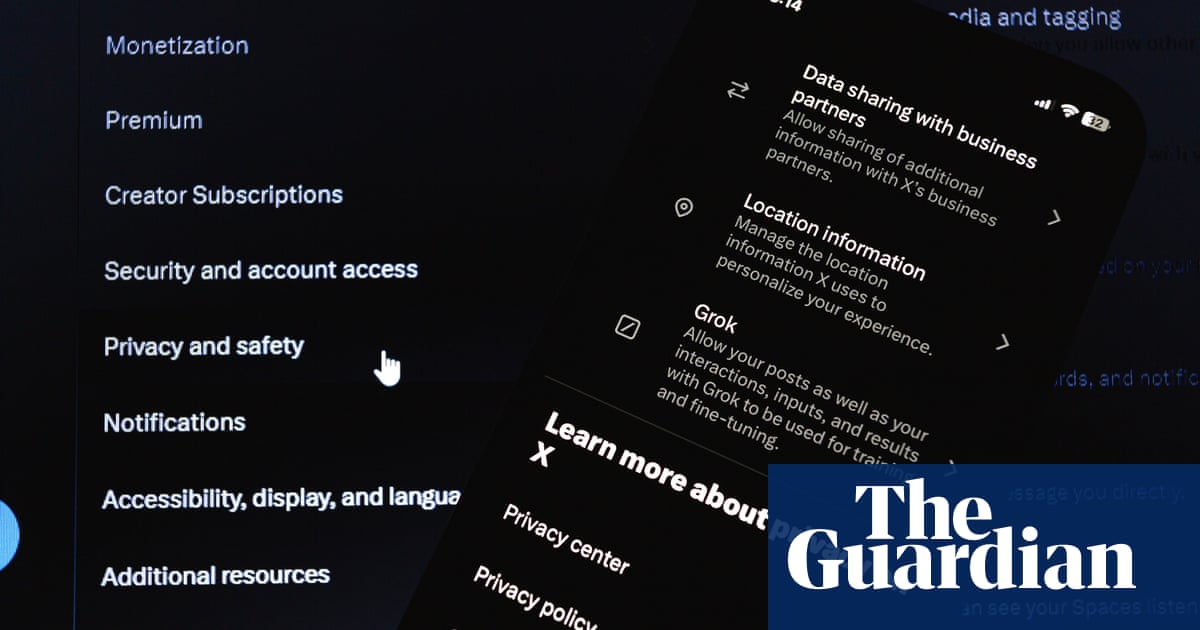Elon Musk’s X platform is under pressure from data regulators after it emerged that users are consenting to their posts being used to build artificial intelligence systems via a default setting on the app.
The UK and Irish data watchdogs said they have contacted X over the apparent attempt to gain user consent for data harvesting without them knowing about it.
An X user highlighted the issue on Friday, pointing to a setting on the app that activated by default and permitted the account holder’s posts to be used for training Grok, an AI chatbot built by Musk’s xAI business.
Under UK GDPR, which is based on the EU data regulation of the same name, companies are not allowed to use “pre-ticked boxes” or “any other method of default consent”.
The setting, which comes with an already ticked box, states that you “allow your posts as well as your interactions, inputs and results with Grok to be used for training and fine-tuning”. According to the X user, the setting can only be turned off on the web version of X.
Data regulators immediately expressed concern about the default setting. In the UK, the information commissioner’s office (ICO) said it was “making enquiries” with X.
“Platforms seeking to use their users’ data to train their AI foundation models must be transparent about their activities,” said a spokesperson for the ICO.
“They should take steps to proactively notify users well in advance of using data for these purposes, and provide people with ample time and simple processes to object to having their data used in this way.”
The Data Protection Commission (DPC) in the Republic of Ireland, the lead regulator for X across the European Union, said it had already been speaking to Musk’s company about data collection and AI models this week and was “surprised” to learn of the default setting.
“The DPC has been engaging with X on this matter for a number of months, with our latest interaction occurring as recently as yesterday, therefore we are surprised by today’s developments. We have followed up with X today and are awaiting a response. We expect further engagement early next week,” said Graham Doyle, a DPC deputy commissioner.
Large language models are the technology underpinning chatbots such as ChatGPT and Grok and are fed vast amounts of data scraped from the internet in order to spot patterns in language and build a statistical understanding of it. This ultimately enables chatbots to churn out convincing-looking answers to queries.
However, this approach has met with opposition in multiple areas including from news publishers, authors – who argue that the process breaches copyright laws – and regulators.
This month Meta, the owner of Facebook and Instagram, said it would not release an advanced version of its artificial intelligence model in the EU, blaming the decision on the “unpredictable” behaviour of regulators.
X has been contacted for comment.

